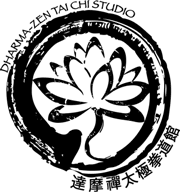When we speak of ignorance I think the biggest issue is people’s fear of being seen as ignorant.
In English ignorant is defined as “1. lacking in knowledge or training; unlearned. 2. lacking knowledge of information as to a particular subject or fact. 3. uninformed. 4. due to or showing a lack of knowledge or training.” (dictionary.com).
Unfortunately colloquial English often defines ignorant as follows: (adj) :not polite; unkind; rude esp. because of a lack of moral behavior.” From “The Dictionary of Informal, Slang and Idiomatic Phrases in Spoken English.” This last definition is a discussion for another time.
The great philosopher Socrates often said his wisdom was limited to an awareness of his own ignorance. Socrates believed wrongdoing was a result of ignorance and those who did wrong knew no better. He is noted for saying; “I am the wisest man alive, for I know one thing, and that is that I know nothing” and “I know nothing except the fact of my ignorance.” In modern age “Stay Hungry.Stay Foolish.”Steve Jobs said it to encourage people..
In China the Taoist philosopher, Lao-Zi (Laotse), author of the Daodejing(Tao Te Ching), is known to have a similar saying: ”The wise one does not know many things; He who knows many things is not wise.”
So if a person knows himself to be ignorant it is not shameful. Lao-Zi also told us that “He who knows others is learned; He who know himself is wise.”
The opposite of ignorant is knowledgeable. In Buddhism you can find a concept called the “Knowledge Barrier.” This refers to the times when knowledge becomes a stumbling block towards reaching enlightenment. One famous example uses the moon and a finger pointing at the moon as a metaphorical explanation.
Let’s make the moon the state of Enlightenment. All of the Sutras/sacred writings can be likened as a finger. The finger is used to point you towards the moon, showing you the way. A seeker who focuses all his/her attention on the finger doesn’t reach the moon.
Similarly, after many years of martial arts training, I have realized that in Chinese martial arts (Wu Shu) learning forms and learning striking skills (San Da) are not the same. Every school practices their own special kind of style, like T’ai Chi Chu’an, Xing Yi, Ba Gua or Shao Lin. However, even when you can perform a form very well, it doesn’t mean you can use those skills in a real fight. If you want to be good in a real fight, then you have to practice free style sparring very often. For instance, there are a lot of Wu Shu forms made just for performances; we call it “Showy Boxing”. When you see people doing a form on TV, and it looks nice, then it can’t be used in a real fight.
Consider the skills of a person who has read a lot of martial arts books and can do many different kinds martial arts forms but has never practice free style sparring. If he chooses to compete at an Ultimate Fighter event, he will still lose the fight. All martial arts forms are just one way to help us develope our “muscle memory” and release our body and mind. The form’s intent is to keep you relaxed when you face a real fight, so you can be “natural.”
This is why I like the part in the movie “Kung Fu Panda” where the panda opens the Dragon Scroll to find it is blank. “The Tao(Dao) that can be told of is not the absolute Tao(Dao); The Names that can be given are not absolute Names.”
Buddha told us:”… people should remember the unreality of …concepts and ideas. They should recall that in teaching spiritual truths the Buddha always uses…concepts and ideas in the way that a raft is used to cross a river. Once the river has been crossed over, the raft is of no more use, and should be discarded… arbitrary concepts and ideas about spiritual things need to be explained to us as we seek to attain Enlightenment. However, ultimately these arbitrary conceptions can be discarded. …[ To attain Enlightenment] isn’t it even more obvious that we should also give up our conceptions of non-existent things?” For a more complete explanation please go to http://www.diamond-sutra.com/diamond_sutra_text/page6.html
What has the most knowledge? “The Internet”(Divine Google) is our most common response. When we “Google” the Internet we usually get many, many answers. But it doesn’t automatically solve the problems in our life. Why is that?
There are many different answers to life’s questions. People choose, based on ignorance or knowledge. Sometimes the best answers comes from honestly confronting our own ignorance or leave our mind empty. Then we find the path pointing to the answers we need.
